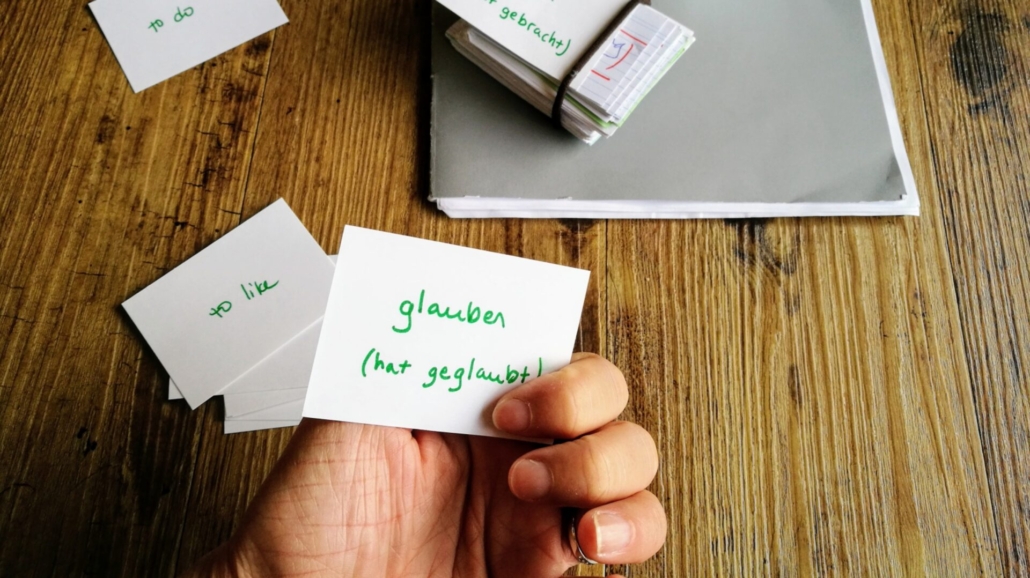The Value of Flashcards

Flashcards have been a go-to study tool for generations, and for good reason. They offer a simple and effective way to memorize information quickly, whether you’re studying for a test, learning a new language, or trying to remember key concepts in a subject area. But like any tool, the effectiveness of flashcards depends on how you use them. In this post, we’ll explore some of the best ways to use flashcards when you study, so you can maximize your learning and retention.
1. Make Your Own Flashcards
One of the best ways to use flashcards is to make your own. Writing down the information yourself can help you to retain it better, and you can customize the flashcards to suit your needs. If you’re learning a new language, you can create flashcards with new vocabulary words on one side and their translations on the other. If you’re studying for a history exam, you can create flashcards with key events, dates, and figures. By creating your own flashcards, you can focus on the information that you need to learn and tailor your study materials to your specific needs.
2. Use Flashcard Apps
While traditional paper flashcards are still effective, many people find that using flashcard apps is more convenient and efficient. There are a variety of flashcard apps available, both free and paid, that allow you to create and study flashcards on your smartphone, tablet, or computer. These apps often offer additional features like audio pronunciation, progress tracking, and sharing with other users. Some popular flashcard apps include Quizlet, Anki, and Brainscape. Be careful, though, about relying on pre-made lists. As the above suggests, the creation of cards is part of the learning process and one of their most valuable aspects.
3. Study Frequently
Consistency is key when it comes to using flashcards effectively. Rather than cramming all your studying into one session, try to study for shorter periods of time more frequently. You might study your flashcards for 15 minutes every day, rather than for several hours once a week. This helps to reinforce the information in your memory and prevents you from becoming overwhelmed by the amount of information you need to learn.
4. Mix Up the Order
When you’re studying with flashcards, it’s easy to fall into the habit of memorizing the cards in a particular order. However, this can be detrimental to your learning, as it encourages you to rely on the order of the cards rather than the actual information. To avoid this, try shuffling your flashcards or using a flashcard app that randomizes the order of the cards. Changing the order of the cards will prompt you to think about the information itself, rather than the order in which it appears.
5. Use Mnemonic Devices
Mnemonic devices are memory aids that help you to remember information more easily. They can be especially useful when studying with flashcards, as they allow you to create connections between different pieces of information. For example, you might use an acronym to remember a list of items or a catchy phrase to remember a complex concept. By incorporating mnemonic devices into your flashcards, you can make the information more memorable and easier to recall.
6. Focus on Problem Areas
When studying with flashcards, it’s important to focus on the areas where you need the most help. If you’re struggling with a particular vocabulary word or math equation, you might create multiple flashcards specifically for that item. By focusing on your problem areas, you can give yourself more targeted practice and improve your overall understanding of the subject.
7. Use Color-Coding
Using different colors for different types of information can help you to organize and remember the information more easily. You might use blue flashcards for vocabulary words, green flashcards for formulas, and yellow flashcards for key concepts. This system of color coding can be especially useful if you’re studying multiple subjects at once, as it allows you to more readily identify the subjects at hand.
8. Review the flashcards regularly
Once you have written the information on the flashcards, the next step is to review them regularly. This means going through each card, reading the question or prompt, and trying to recall the answer. If you get the answer right, move on to the next card. If you get it wrong, put the card aside and review it again later.
Flashcards are a versatile and effective tool for studying. By writing the information on the cards, reviewing them regularly, mixing up the order, using different colors, and employing mnemonic devices, you can use flashcards to help you learn and memorize information quickly and easily. So, the next time you need to study for a test or learn a new subject, consider using flashcards as part of your study routine. At Teachers Who Tutor, our tutors use flashcards as one of many tools to help our students.


